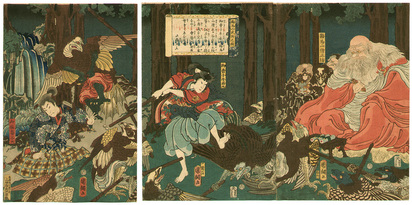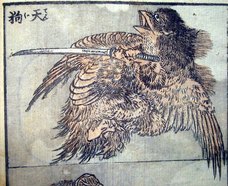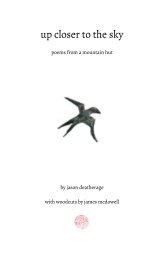
A brief overview of some implications of paying attention
The Chinese have a martial concept known as Tsing Jin, which means ‘listening energy’. This sort of listening is not done with the ears, but with the whole body and mind of the martial artist. It just means ‘paying attention’ to what is actually there, rather than imagining, pre-conceiving, or wishfully thinking. It also means that there are ways to learn things other than by looking and watching, which seem to provide the majority of input as we learn. This concept is most often encountered in ‘sticking hands’ practice, in which one fights an opponent while always remaining in touching contact with them.
When we touch an opponent, if we ‘listen’ carefully to the information we receive from the point of contact with them, we begin to be able to perceive their actions in a variety of ways. On the most basic level we can feel if that point of contact is moving and where it is moving to. As our perceptions are trained through practice and experience, we begin to ‘hear’ actions in other parts of their body and can even start to divine their intent to a limited degree through small, subtle body movements. It’s an easy thing to try: simply touch someone’s arm, and have them perform various movements, such as punches with either hand, kicks, etc. You can invariably feel these actions through the point of contact, and with practice, the amount of information passed this way increases greatly.
For most, even this amount of ‘listening’ is not something commonly taught or understood. For the student of the sword, who practices an art that can result in death within seconds of an encounter being joined, it is critical to develop this ‘listening’ in all aspects of our training. As swords come into contact, this ‘listening’ becomes a critical component of one’s ability to read the opponent’s movements, even when they are too fast for visual processing. By listening we are able to know what is happening in an encounter, we can touch and guide the opponent’s sword, and we can learn their capabilities to a deep level. Through this point of contact, we are able to feed false information to the opponent as well. Almost everyone is ‘listening’ on subconscious levels, so we must address the opponent on every level of perception.
For example, let’s take the most basic of sword techniques: the overhead cut and the block. When one definitively and powerfully blocks a strike, they are delivering a very clear message to the attacker: “Your attack has failed. Now you must take another approach or try again.” Naturally, even the novice opponent senses this message subconsciously and will obey its logical imperative. However, if one does not disturb the attack, meeting it and making contact but guiding the attack along its original path, the attacker does not realize the attack has not had the predicted effect until just that little bit too late, leaving them vulnerable. It is by ‘listening’ that we are able to communicate with the opponent on many levels.
Listening has other implications as well. Any weapon possesses inherent attributes that dictate what it will be capable of in the hands of the wielder. By ‘listening’ to a weapon, we are able to learn what these attributes are. For example, if we hold a sword in our hands, we can absorb a great deal of information instantly: the weight, the number of edges, the shape of the blade, the type of guard, the pommel and point, and more. Each of these attributes tells us something about how to use the weapon most effectively. The weight and length will give us an idea how fast or powerful the sword is; a single or double edge immediately tells us if there are 8 different cuts or 16 available to us; the shape of the blade dictates if the blade is best used for slashing or thrusting; the type of guard lets us know how safe our sword hand(s) will be in certain positions. For most people, a sword is a sword, with little distinction in usage, but to the student who ‘listens’, the sword can be wielded to a much greater fraction of its potential. By ignoring the inherent attributes of a sword, we risk wielding the weapon in a manner that is less effective than it could be. Some attributes are very obvious; few would try and wield a heavy 2 handed sword one-handed and expect to fight effectively. Other attributes are more subtle, however; having 2 edges completely changes the techniques available to the wielder; a guard that turns up may be excellent for trapping and twisting, a guard that turns down deflects sliding attacks outwards effectively.
The ‘listening’ approach can be extended to any weapon. The spear is long, telling us that it works best at range. The spearhead is not just a point but also features sharpened edges, and even a rear facing edge, telling us that it is not just a thrusting weapon, but a highly efficient cutting and slashing weapon as well. The rear edge lets us cut as we retract the spear, giving us even more combative options. A flexible shaft might allow for attacks around blocks that aren’t usually expected. A heavy shaft allows for a great deal of power to be exerted from any point along the length of the spear, increasing its usefulness, even in close quarters.
By listening to our weapon while we practice our usual techniques and forms, we can learn a great deal about what our forms and techniques really mean, and sometimes even find things that have been lost along the way. Because of this, listening is a critical feature in any weapons training that aspires to being a living, effective style.
Listening in this manner sounds mystical, but it’s not. Listening to our opponent is just using more information than only our vision when we encounter them. Listening to a weapon is just taking a logical, intelligent inventory of what a weapon can do based on its features and feel, and then just allowing the weapon to do those things with as little interference as possible from the user. And like any technique, listening, too has its time to be grasped and its time to be let go. The goal of developing extremely sensitive listening is to eventually be able to just ‘know’ what is going on with no mind whatsoever for analysis and clever strategizing. We begin to be able to listen even without touching; we can hear the opponent’s intent, their spirit, and feel their movements with no physical contact. Again, these are not mystical powers, but the result of becoming sensitive to the vast amount of data around us, and working with it as efficiently as possible rather than ignoring or resisting it.


 RSS Feed
RSS Feed

